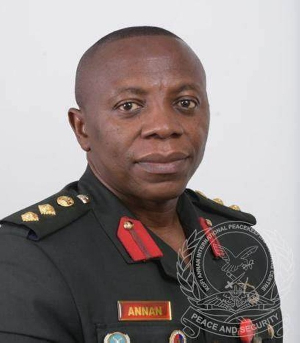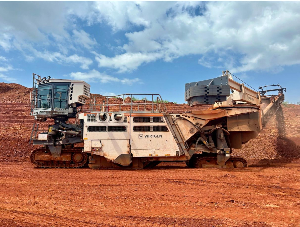The Student Representative Council of the Ensign College of Public Health at Kpong in the Eastern Region as part of this year's “Breast Cancer Awareness month” and “Global Hand Washing Day”, heightened calls on community members to take the necessary precautions against breast cancer and sustain the practice of handwashing.
The aim of the students was to raise awareness on the disease and the continuous need for the habit of handwashing with soap, especially during and after COVID-19, with participants drawn from religious organizations, schools, and members of the general public.
Breast Cancer Awareness month and Global Hand Washing Day are observed each year in October to encourage increased awareness of the importance of handwashing with soap under running water.
This year's Breast Cancer Awareness month is being observed under the theme 'Give Hope, Save Lives’ with that of the Global Hand Washing Day marked on the theme: “Hand Hygiene for All,” reminding the public of the importance of hand hygiene, especially in critical times.
The event was organized with the support of institutional partners of the College including the Center for Global Surgery of the University of Utah, Engage Now Africa, Health2Go, SendGhana, and others.
The Students’ Representative Council (SRC) led by Mr. Stephen Afakorzi expressed satisfaction with the outcome of the program.
He said partakers of the workshop would serve as role models and ambassadors to carry the key messages of the program to their homes and communities for the needed impact.
“We decided to hold this program to sensitize our target population about the realities of breast cancer and also the importance of handwashing especially in this era of COVID-19,” Mr. Afakorzi said.
General Practitioner and Public Health Student at the Ensign College, Dr. Sedinam Adamaley who took the participants through the dangers, risks, causes, and preventions of breast cancer charged them to be breast conscious by engaging in the self-breast examination, at least once in a month.
"We want everybody in Ghana to be aware of breast cancer so we're advocating for breast self-examination," said Dr. Sedinam. "We are advocating for breast self-examination, we should be conscious, we should be able to detect it if we're practicing self-examination monthly, and then if we detect it we should quickly go to the hospital for diagnosis and treatment. In doing so, we should be able to defeat breast cancer in Ghana."
She called on the participants and the general public to report to the nearest health facility with any symptoms of the disease for early treatment.
The General Practitioner and student underscored the risks that poor hand hygiene poses to both women and men including exposing one’s self to contracting breast cancer.
Explaining the relevance of handwashing to breast cancer, she explained that diseased fingers were a risk factor in contracting infections.
“If you have ulceration on your breast and you don't wash your hands very well before you touch it, you can introduce infective organisms into the ulcers and it can cause inflammations coupled with the breast cancer," Miss Adamaley explained.
She attributed the increase in breast cancer cases to low levels of awareness and expressed regret over the resort to prayer camps and herbal centers where very little is done to address the situation until complications set in.
A Nurse Midwife and student at the College who took the participants through the various steps of proper handwashing said the practice was most important during the COVID-19.
“In this COVID era, to be able to keep ourselves safe, and protect ourselves from the disease, we must wash our hands and wash it thoroughly with soap under running water,” she said.
Her concerns arose out of the lack of adherence to the handwashing protocols, adding that the protocols must be followed even after the pandemic.
Health News of Tuesday, 20 October 2020
Source: Michael Oberteye, Contributor
SRC of Ensign College holds workshop on breast cancer and hand washing for community members
Entertainment












